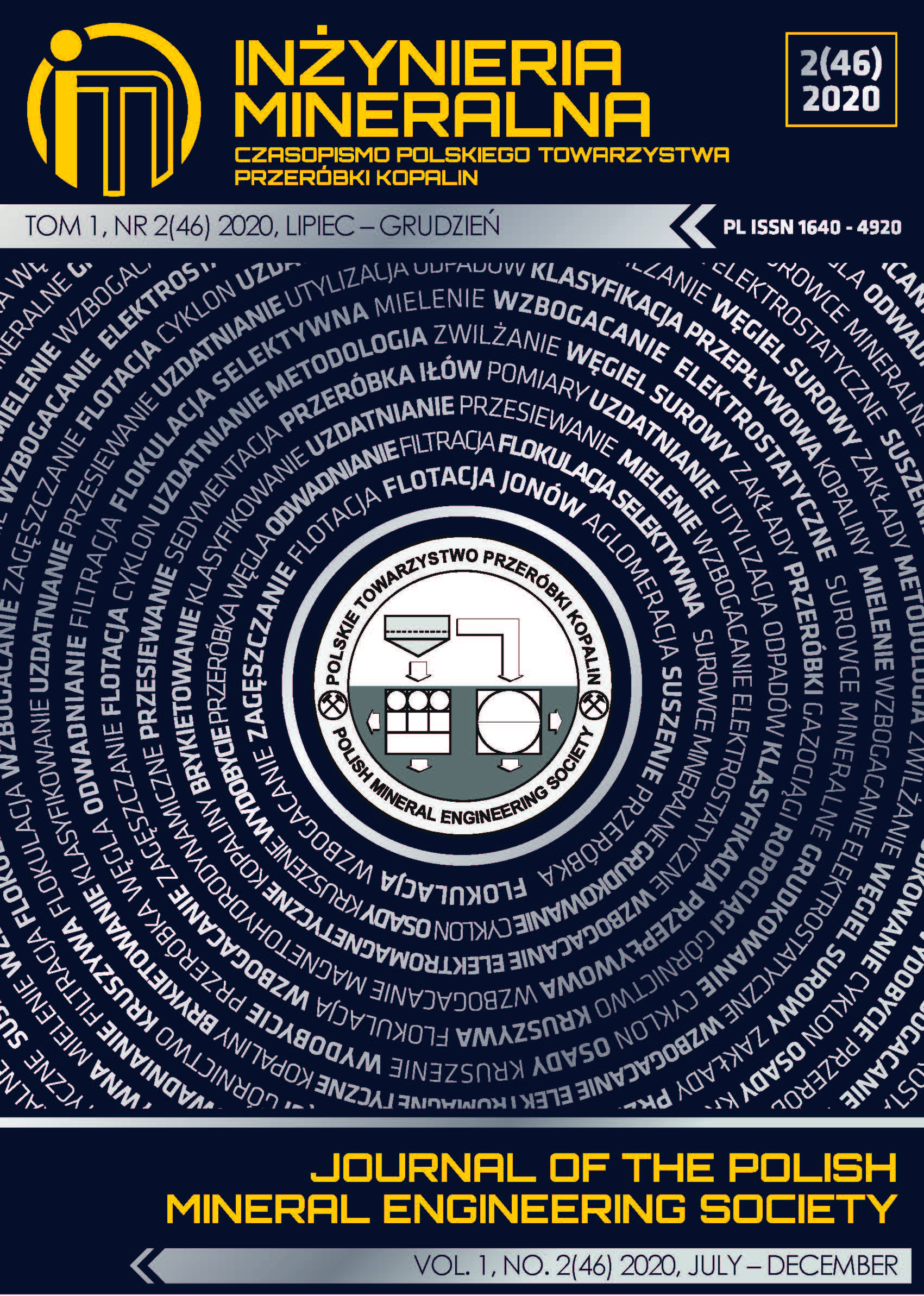Simulation of FLY-ROCK DISTANCe as a Function of Blast Conditions: a Case Study in Vietnam
Abstrakt
The prediction of fly-rock distances is a big problem in the blasting areas of open-pit mines. The fly-rock distance plays a crucial role in the reduction and control of blasting accidents in quarries. This paper proposes the modelling of the contact dynamics as a non-smooth discrete element method (NSCD). Then, the fly-rock phenomenon is simulated using this NSCD method. This approach was to develop a model that correlates to blast conditions, initial fly-rock/rock-fall velocities and permits the computation of fly-rock range from randomization orbits. The results showed that the NSCD method is a good means for the simulation with the variability of blasting parameters. This method is to relate the initial fly-rock velocity to blast conditions and then uses ballistic trajectories to compute the maximum fly-rock distance. Finally, it should be noted that the proposed simulation of fly-rock trajectories which shows the distribution of fly-rock bounce heights above the ground level with the different coefficient of restitution range as a function of blast conditions. It should be used in the Ninh Dan limestone quarry belonging to the Song Thao Cement, Phu Tho province (Vietnam), and it should be directly used in the same other quarries.
Copyright (c) 2020 Inżynieria Mineralna

Utwór dostępny jest na licencji Creative Commons Uznanie autorstwa – Na tych samych warunkach 4.0 Miedzynarodowe.
Czasopismo pozostawia część majątkową praw autorskich autorowi.
Czasopismo zezwala autorom i zachęca ich do zamieszczania swoich artykułów na prywatnych stronach internetowych oraz w instytucjonalnych repozytoriach. Dotyczy to zarówno wersji przed opublikowaniem, jak i wersji po publikacji. Udostępniając swoje artykuły są zobowiązani do zamieszczenia szczegółowych informacji bibliograficznych, w szczególności (o ile to tylko możliwe) podania tytułu tego czasopisma.







.png)
